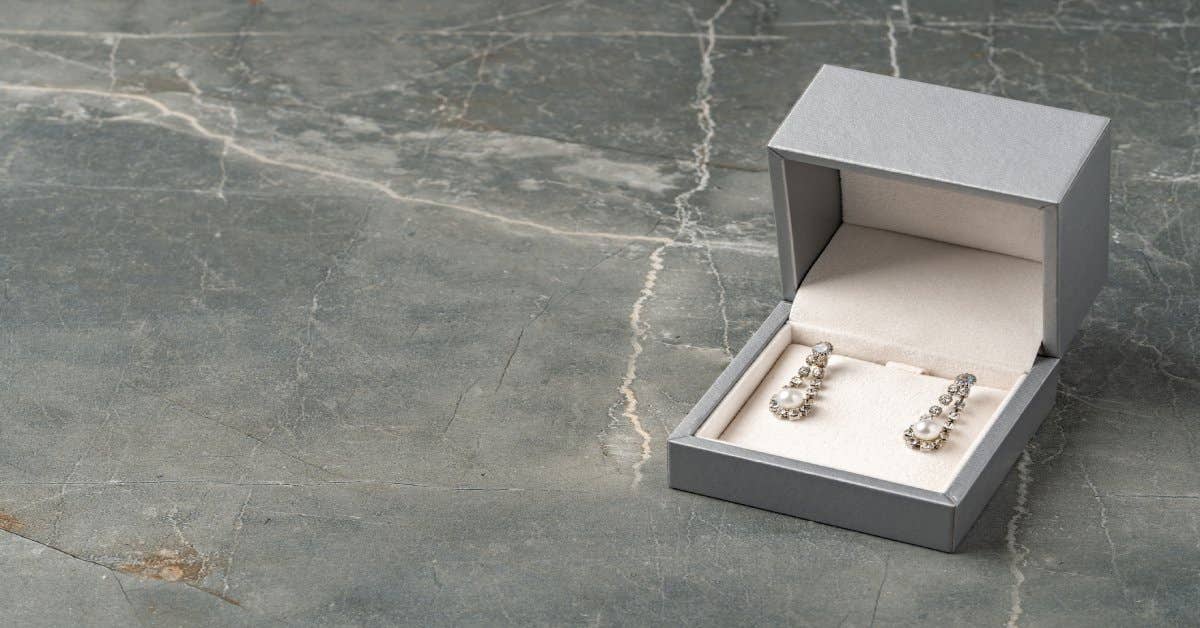
This is why you don’t want to eat food flies have landed on
iStock via Getty ImagesThere is nothing better than eating outside when the weather is nice. And here in Las Vegas that's the better part of the year. We love dining alfresco.
A Fly Landing On Your Food Can Be A Health Hazard
When you're eating outdoors (or indoors) and a fly lands on your food, what do you do? I'm guessing you do what we all do -- you shoo it away, and go right back to eating. I mean, they're just annoying little flies. Well, this might change your whole approach.
Put down your fork. Because it turns out that within the first few seconds of a fly landing on your food, it starts vomiting digestive fluid on it. A fly may not seem like it has a huge brain, but you might be surprised.
Here's Why Flies Vomit Before Eating Your Food
The fly is actually trying to get it soggy enough so that it can slurp it up, since flies don't have teeth with which to chew on your french fries. They sounds pretty smart to me. And pretty gross, too. But - a fly's got to eat!
Flies aren't exactly the most sanitary bugs in the bug world. You know how they love to fly around manure? That's because they're slurping that up too. Oh, the joys of nature!
So when a fly throws up on your food, even though it's just the tiniest bit, they could still be spreading very dangerous bacteria onto it. That includes salmonella and E. coli. Not every fly is going to contaminate your food. But they could. And babies, elderly people, and those people with weaker immune systems are most susceptible.
So What Can You Do About Annoying Flies
According to Todays Homeowner, here are some of ways you can keep flies away: When you eat outside, keep the area free of trash. Trash attracts flies. If possible, use citronella candles or other repellents. These are said to help, just like with mosquitos. You might also want to try old fashioned flypaper. This story and more in "A Few Things We Think You Should Know!"
Buon appetito!
Yes There Are Mosquitos in Las Vegas — Here’s Help
YES! We DO have mosquitos in Las Vegas - and the two we have always seem to bite me! Anywhere I go I get bit! Time to pull out the mosquito repellent.
For the most part mosquitoes just leave bothersome, itchy bites on your skin. But they can also pose a serious and sometimes deadly risk to your health. When a mosquito bites you, it may transmit harmful pathogens that cause dangerous diseases like malaria, Dengue fever, Zika and West Nile.
How to avoid mosquito bites
Female mosquitos bite to get vital nutrients from our blood. They use these nutrients to make their eggs. One single bite can breed about 100 mosquitos!
There are several ways to avoid bites. Wearing long, loose clothing, limiting time outside, placing screens over your windows and getting rid of standing water that mosquitoes seem to love.
Still, one of the best ways to protect yourself from hungry mosquitoes is by using mosquito repellents. There are a lot of them out there, so here’s what you need to know to protect yourself this summer
Early mosquito repellents
The use of mosquito repellents goes far back in time. Some of the oldest records of the use of mosquito repellents date back to early Egyptian and Roman history. Back then, the popular repellent was smoke smudge from fires.
Today, we have more options than our ancestors when it comes to choosing what type of mosquito repellent to use – sprays and lotions, candles, coils and vaporizers, to name some.
These repellents actually interfere with a mosquito’s sense of smell, taste or both. Didn't know their noses or tongues were that sensitive. The repellent either blocks or overstimulates these senses, but it's still unknown exactly how. Who cares, right? As long as they work!
Repellent tests:
For some products, testing was as simple as putting a volunteer’s treated arm into a cage with 25 mosquitoes and waiting for the first mosquito bite. If they didn't - it worked!
For others, like citronella candles, a candle or device was put between a person and a cage of mosquitoes. Depending on the repellent efficacy of the device, mosquitoes either flew toward the person or away -easy enough. However when I'm around, mosquitos LOVE citronella!
Mosquito repellents that don’t really work:
Bracelets don’t work. Department stores and pharmacy chains sell hundreds of different varieties of bracelets. They are marketed as “mosquito repellent” bands, wristbands and watches. They vary from plastic to leather. Even if they're loaded with repellents, they can’t protect your whole body from mosquito bites.
Ultrasonic repellent devices have failed as well. There are electrical plug-ins, free-standing variations that claim to emit a high-frequency sound that deters mosquitoes by mimicking bats. but, in scientific studies, ultrasonic repellent devices fail to repel the buggers. In fact, one lab found a slight increase in mosquito attraction to the wearer.
Dietary supplements like vitamin B, garlic and so on - also a no go! No scientific evidence points to these working.
Light-based repellents? Nope! Thought colored light bulbs do work well on moths, beetles and stinkbugs, but not on mosquitoes.
Here is a ranking of mosquito repellents that DO work.
DEET
DEET. Chemical name, N,N-diethyl-meta-toluamide, was developed in the 1950s by the U.S. Army and is a well-established mosquito repellent with a long history of use. The higher the percentage, the longer the protection time is – up to six hours.
 iStock via Getty Images
iStock via Getty ImagesiStock via Getty Images Plus
Picaridin
This is a synthetic repellent that can protect for up to six hours at a 20% concentration. It is a promising alternative for DEET.
 Cliff Partlow via Getty Images)
Cliff Partlow via Getty Images)Cliff Partlow via Getty Images
OLE: Oil of lemon eucalyptus,
OLE works with the active ingredient, and is a plant-based alternative to DEET and picaridin. Its repellent properties can last for up to six hours.
 iStock via Getty Images Plus
iStock via Getty Images PlusiStock via Getty Images Plus
Essential Oils
Some work well, some not so much. A study tried 20 different essential oils in a 10% essential oil lotion mixture. Clove oil, Cinnamon oil, Geraniol all worked for 60 to 90 minutes. Citronella oil worked for only about 30 minutes.
 iStock via Getty Images Plus
iStock via Getty Images PlusiStock via Getty Images Plus
A Spiderman Outfit
I mean, if you're going to cover up, you might as well do it in style.
 iStock via Getty Images
iStock via Getty ImagesiStock via Getty Images
- Twitter: https://twitter.com/
kklz963 - Instagram: https://www.
instagram.com/kklz963/ - Facebook: https://www.
facebook.com/kklz963/






